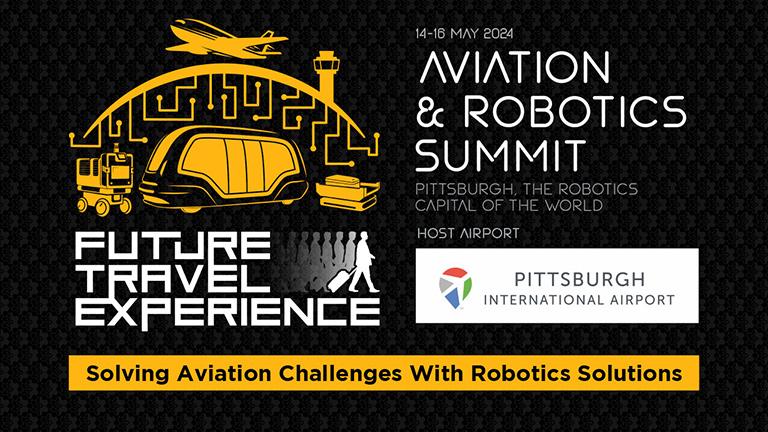Robotics technologies and automation have the potential to deliver a range of benefits that significantly enhance operational efficiencies, improve the passenger experience, and deliver on the promise of transformed travel. In part 2 of our extensive focus on robotics and automation – ahead of the FTE Aviation & Robotics Summit taking place in Pittsburgh on 14-16 May 2024 – Tan Jin Yang, Associate General Manager, Airport Operations Strategy & Transformation, Changi Airport Group; Jodie Brinkerhoff, Vice President, Innovation, Dallas Fort Worth International Airport; Maurice Jenkins, Chief Innovation Officer, Miami International Airport; Dr Jan-Henrik Andersson, Chief Commercial Officer, Munich Airport; and Rick Belliotti, Acting Chief Experience and Performance Officer & Deputy Chief of Information Systems, Austin-Bergstrom International Airport, share their insights into the latest developments and trends in this realm. You can view part 1 of our focus on robotics and automation – featuring Cincinnati/Northern Kentucky International Airport, Pittsburgh International Airport, Aeroporti di Roma and London Gatwick, by clicking here.
Changi: “Leveraging these ‘intelligent tools’ are key enablers in ensuring smooth operations and passenger experience”
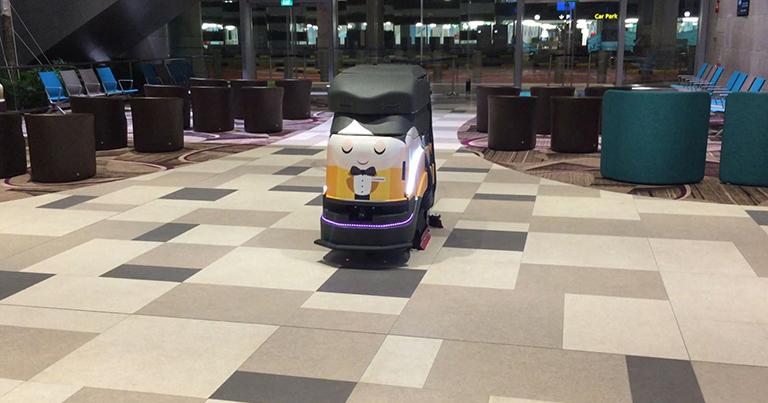
Changi Airport Group – a Headline Partner of FTE APEX Asia Expo, Singapore, 19-20 November 2024 – has been conducting extensive trials on the use of autonomous vehicles at the airside to augment its airside workers in the transporting, loading and unloading of baggage containers. As Future Travel Experience reported in this article, in January 2024 it was announced that Changi and Aurrigo are collaborating to test the latest version of the electric-powered autonomous vehicle, Auto-DollyTug, at the airport.

Meanwhile, on robotics, Changi has deployed the use of cleaning robots to clean the vast terminal floor areas, as well as grass cutting robots to help maintain the turf at the airside.
“We see that the use of robotics and autonomous vehicles can help to fulfil routine, rule-based tasks, which improves overall manpower productivity by augmenting the existing workforce,” says Tan Jin Yang, Associate General Manager, Airport Operations Strategy & Transformation, Changi Airport Group. “With traffic at Changi expected to return to pre-Covid levels this year, leveraging these ‘intelligent tools’ are key enablers in ensuring operations can continue to run smoothly, enabling a smooth experience for all passengers who pass through our terminals.”
Further commenting on trends in terms of robotics technologies, Tan adds that, in recent years, the cost of sensors has dropped while their performance has improved which has translated to a moderation in the price of robots in the market. “We have also seen an increase in the number of vendors and the variety of robots they are offering and are excited to see how these could be integrated into our operations.”
DFW preparing for the future with efficient mobility technologies and robotics
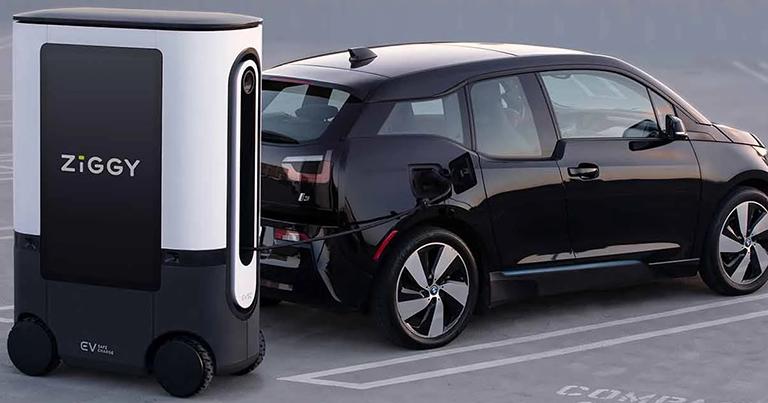
Dallas Fort Worth International Airport (DFW) – a Corporate Partner of the FTE Digital, Innovation & Startup Hub, which is focusing on AI, robotics and IoT throughout 2024 – is among the most progressive in the robotics and automation space. The DFW team began a journey into autonomous vehicles back in 2019 following a strategic plan update that contemplated a future with driverless cars. “As part of our portfolio of ‘rapid learning’ initiatives, we trialled a 15-person autonomous shuttle for passengers,” says Jodie Brinkerhoff, Vice President, Innovation, Dallas Fort Worth International Airport. “The effort provided cross-functional teams an opportunity to participate in the planning and implementation of this emerging technology. Billed as an important learning exercise, the trial introduced our teams to the required processes of AV mapping and charging and provided exposure to operational safety and customer experience enhancements.”
Following completion of the AV passenger shuttle trial, DFW initiated the ‘Roadmap to Autonomy’ initiative, a comprehensive research study to help bring light to the broad complexities on the path to a future with full autonomy. “The study, conducted for us by NREL, provided us with a clear set of critical dependencies and potential pathways to a fully autonomous ecosystem,” Brinkerhoff explains.

DFW’s current AV Landscape Research project (2023-2024) aims to assess the market for autonomous vehicles, prioritise use cases such as APMs (autonomous people movement vehicles) and AGVs (autonomous ground vehicles) and provide specific language and selection criteria for future procurement events. “The research will identify potential companies capable of providing APMs, AGVs, or technology to retrofit existing vehicles for remote or autonomous operation,” Brinkerhoff shares. “The project’s goals were to inform DFW’s long-term planning and enable decision-making on the roadmap to autonomy.”
In other robotics initiatives, in 2019 DFW entered its first trial of autonomous wheelchairs with WHILL. Trials featured both semi-autonomous and autonomous modes. “These machines were deemed to still be in their early stages; we remain bullish on the opportunity to solve passenger mobility challenges with multi-modal transit options and have continued to explore other emerging technologies in this space,” Brinkerhoff explains.
DFW has also evaluated autonomous lawn mowers and following a successful trial is exploring the purchase or lease of these to complement its existing landscaping efforts.
Meanwhile, in June 2021 DFW launched a 1.0 version of an AI-powered digital human concierge named ‘Iris’. Working in concert with IBM and Soul Machines the digital concierge evolved throughout 2021 and 2022.
“We continue to believe in the potential value of efficient mobility technologies and robotics as a means of moving goods, cargo, our thousands of employees and millions of passengers,” Brinkerhoff adds. “To prepare the airport for the future, we are chipping away at our roadmap to autonomy initiatives by researching technologies and preparing the people and systems of the airport to adopt them when the time is right.”
MIA evaluating robotics and autonomous vehicles to reshape operations
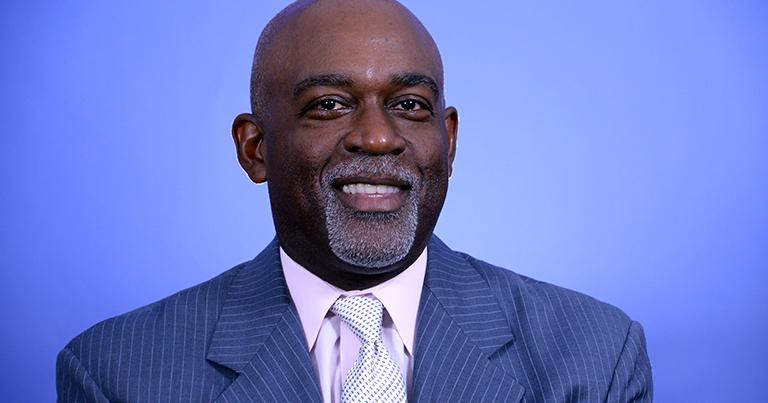
Miami International Airport – a Corporate Partner of the FTE Digital, Innovation & Startup Hub – is evaluating robotics and autonomous vehicles to reshape operations, from passenger guidance robots to autonomous vehicles for baggage handling, aircraft towing, food delivery, terminal cleaning, and wayfinding assistance. “We are working with Honda and Illuminex to pilot an autonomous lawnmower and autonomous vehicle with lidar sensors for perimeter intrusion detection,” explains Maurice Jenkins, Chief Innovation Officer, Miami International Airport. “If the pilot goes as planned, we intend to utilise the autonomous vehicles for airfield operations.”
Artificial Intelligence (AI) and Machine Learning (ML) advancements enable robots to learn, adapt and make intelligent decisions. “Cloud robotics will enhance these capabilities through remote data analysis, skill sharing, and telepresence control. Increased accessibility, propelled by open-source platforms, lower-cost hardware, and realistic simulations, will make robotics widely available for development and deployment,” Jenkins shares. “Integrating robotics and autonomous vehicles in airports is still in the early stages of adoption. However, their potential to revolutionise operational efficiency across airside operations, baggage handling, and other areas makes future widespread use inevitable.”
MUC exploring revolutionary robotics projects and prioritising digitisation and automation
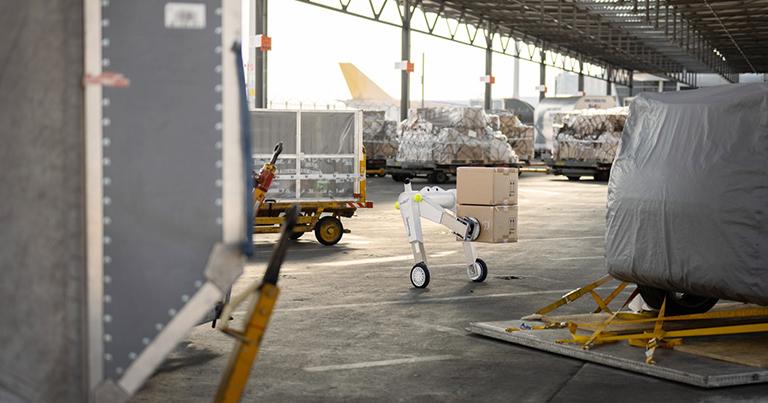
The digitisation and automation of processes in operational and commercial areas is a top priority at Munich Airport. For example, a service robot will soon enter the test phase. “This ‘snackbot’ will move slowly through the gate area in our Terminal 2, offering a selection of cold soft drinks and snacks that can be paid for with a variety of cashless payment methods,” says Dr Jan-Henrik Andersson, Chief Commercial Officer, Munich Airport.
Another exciting field of activity for revolutionary robotics projects can be found on the apron. Together with Fraunhofer Institute (a member of the FTE Digital, Innovation & Startup Hub and the FTE Baggage Innovation Working Group), Munich Airport is developing the unique BagBOT. This robot will be equipped with innovative gripping technology and provide support for the remote-controlled loading and unloading of aircraft. “We have successfully completed the feasibility study and will now turn our attention to the product development of the BagBOT,” Andersson explains. “The evoBOT is a further exciting test project with the Fraunhofer Institute. This transport robot marks the start of a new population of autonomous vehicles and robots. With its arms and two-wheeled mobility, it points to the humanoid future of robotics. The dynamically stable robot which is being tested in our freight division can take on a wide range of tasks such as handling hazardous goods, transporting parcels over long, recurring distances and relieving strain during lifting and overhead work.”
Attendees at FTE Global 2023 were able to see the evoBOT in action. Read the full event report here.
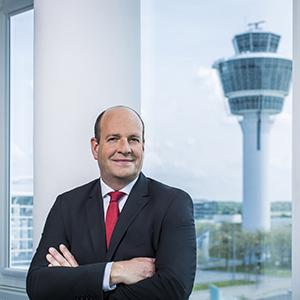
From summer 2024, Munich Airport will be testing one additional autonomous vehicle for freight transportation alongside the evoBOT, which could also be used for baggage transportation later. “We have developed a roadmap for the use of autonomous vehicles that deals with the required framework conditions, safety requirements and necessary processes,” Andersson shares.
In addition to service robots that are visible to passengers, navigation aids, biometric systems, autonomous vehicles, and loading and lifting aids, Munich Airport sees a clear trend toward software robotics. “In other words, in the future, operational efficiency will be sought not only through robotic hardware, but also through process improvement technologies like process mining, AI, and robotic process automation,” says Andersson. “These technologies can be used in many operational or repetitive processes. In aircraft handling, for example, there are many factors that affect the time between an aircraft’s arrival and departure. These include the boarding process, aircraft loading and unloading, and other technical processes. For all these steps in the turnaround chain, data is already being collected. With the help of innovative algorithms, this data can be analysed, and measures can be taken to further optimise operations.”
AUS: “We recognise the potential of robotics and autonomous vehicles to improve operational efficiency and enhance the passenger experience”
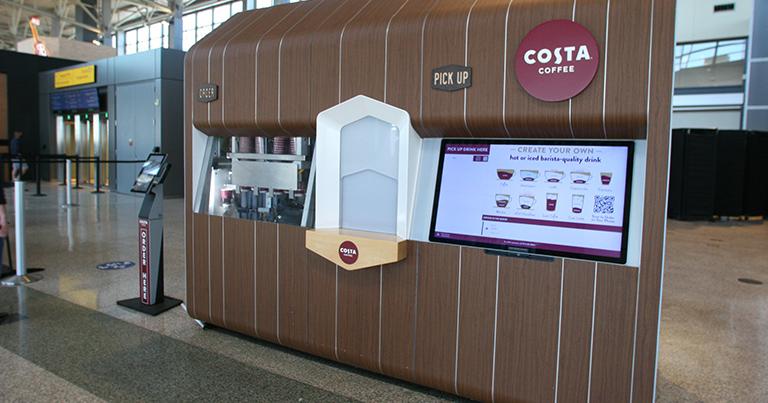
Austin-Bergstrom International Airport (AUS) uses automation for various customer experience initiatives and features autonomous or robotic technologies for many of its concession offerings. “A popular traveller favourite is the Costa Coffee autonomous barista robot, which crafts coffees from a simple cup of drip brew to espresso-based drinks like lattes, macchiato and cappuccinos – all fully robotic,” says Rick Belliotti, Acting Chief Experience and Performance Officer & Deputy Chief of Information Systems, Austin-Bergstrom International Airport.
AUS recently purchased two autonomous scrubber dryers that help clean its terminal floors. These are fully autonomous and have mapped out a pre-programmed pathway that they take while they clean. “They are equipped with 3D, 2D and infrared sensors that keep them from colliding with furniture, people or other things inside the terminal we wouldn’t want them to bump into,” Belliotti explains. “While they are monitored by staff while in use, they are fully autonomous and have helped us keep our terminal clean while saving us time and people-power.”

AUS continues to see touchless and self-service trends prove to be popular among customers. Its concession partner Delaware North will soon install a first for the airport – a fully autonomous tended bar that allows customers to place an order for a cocktail, beer or wine without ever having to interact with a human. “We’re excited to offer this unique experience to our customers in the coming months,” Belliotti shares. “At AUS, we value a safe and comfortable customer experience as our number one priority. We keep an eye out for trends that could help deliver an incredible and memorable customer experience that keeps both travellers and airport personnel safe.”
The airport is particularly interested to further explore ways in which autonomous vehicles (AVs) and other forms of automation can free up staff for more complex or involved duties.
“We recognise the potential of robotics and AVs to play a significant role in achieving our goals of improving operational efficiency and enhancing the passenger experience,” Belliotti notes. “We are also interested in the enhanced data collection that automation can sometimes provide. Sensors on robots and AVs, combined with data collected from other sources such as Internet of Things (IoT) devices and WiFi can provide real-time data on operations, enabling more informed decision-making and proactive maintenance.”
FTE Aviation & Robotics Summit to take place in Pittsburgh, 14-16 May 2024
Learn more about robotics at the FTE Aviation & Robotics Summit, taking place in Pittsburgh – the “Robotics Capital of the World” – on 14-16 May 2024.
The FTE Aviation & Robotics Summit 2024 will bring together aviation and robotics industry professionals with the primary goal of solving aviation business and operational challenges with robotics solutions. The three-day interdisciplinary series of conference sessions, workshops, robotics innovation tours, and networking opportunities will take place across the city of Pittsburgh. The workshops will be hosted at the renowned Carnegie Mellon University (CMU) – one of the top robotics and computer science universities in the world.
The FTE Aviation & Robotics Summit kickoff event on Tuesday 14 May will take place at Pittsburgh’s Heinz History Center – a truly unique venue. As well as providing an incredible networking opportunity, the kickoff event will feature inspiring keynote speakers. Attendees will also have access to six floors of interactive exhibitions, including the museum’s flagship exhibit, Pittsburgh: A Tradition of Innovation.
To meet phenomenal demand for insights and learning in this realm, the 2024 event will be open to all industry executives with a definitive focus on robotics and AI – technologies which we are convinced will reimagine the aviation sector within the next five to 10 years.
There are a total of 100 complimentary tickets available for direct employees of Airports, Airlines, Aircraft Manufacturers and Government Agencies, who must express their interest by Thursday 29 February in order to be considered for a free ticket. In addition, we have 100 tickets available for Vendors/Suppliers.
Register / express your interest in the FTE Aviation & Robotics Summit 2024 >>
